Patrice Evra (Part 2)
Patrice Evra (Part 2)
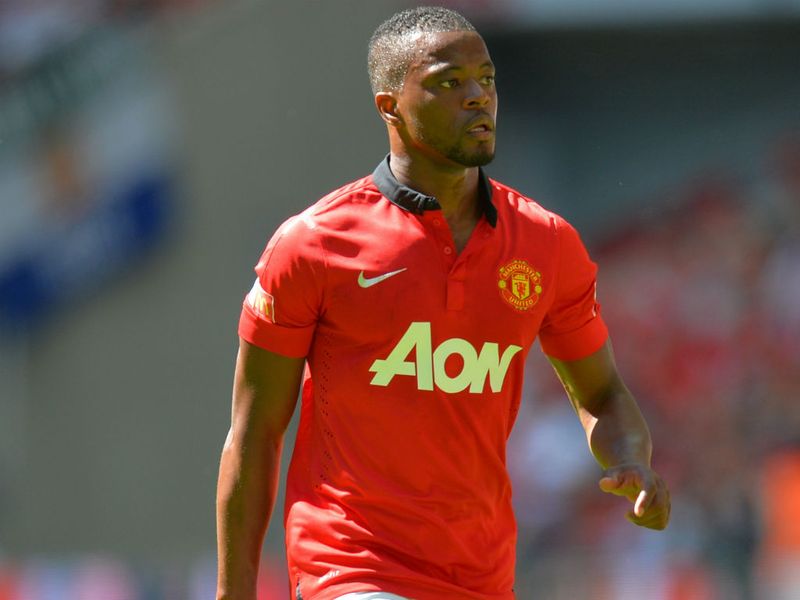
After joining Manchester United in January 2006, Patrice Evra initially faced challenges adapting to the English game. He made his debut in a Premier League match against Manchester City, but was substituted at halftime after struggling to make an impact. Despite this setback, he soon found his footing and made a significant contribution in his next match against Liverpool, which United won 1-0.
Evra's breakthrough moment came when he appeared as a substitute in United's 4-0 League Cup final victory over Wigan Athletic. However, controversy arose when allegations of racial abuse by Liverpool defender Steve Finnan surfaced after a match. Despite an investigation, Finnan was not charged by The Football Association.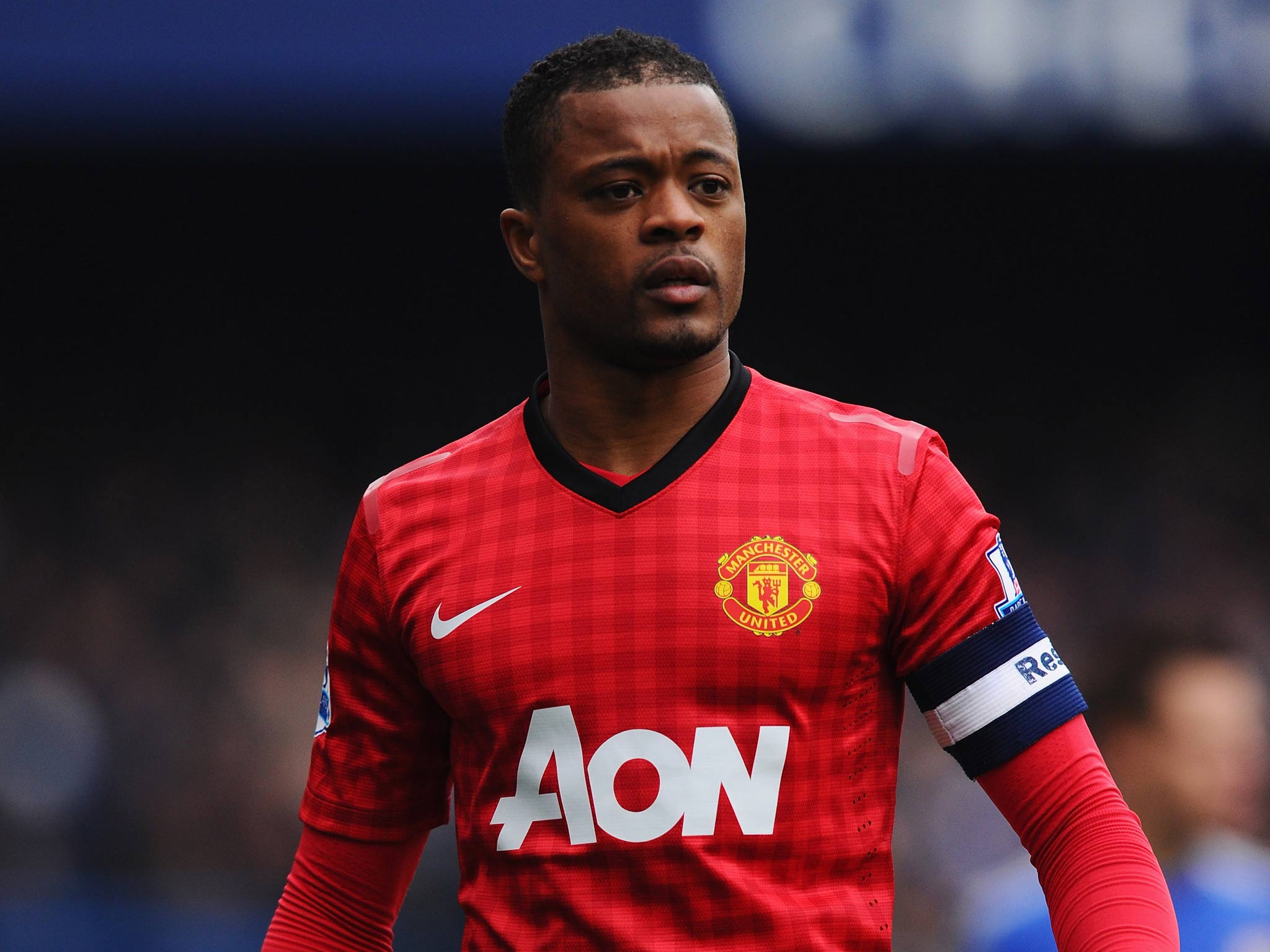
In his first full season at Manchester United, Evra faced competition from Mikael Silvestre for the left-back position. However, he gradually established himself as a regular starter, making his European debut for the club in a Champions League match against Copenhagen. He provided crucial assists and scored his first goal for United in a league match against Everton.
During the 2006-2007 season, Evra became a key player for United, helping the team win the Premier League title. He also scored his first Champions League goal in a memorable 7-1 victory over Roma in the quarter-finals. Despite United's elimination in the semi-finals, Evra's performances earned him a place in the PFA Team of the Year.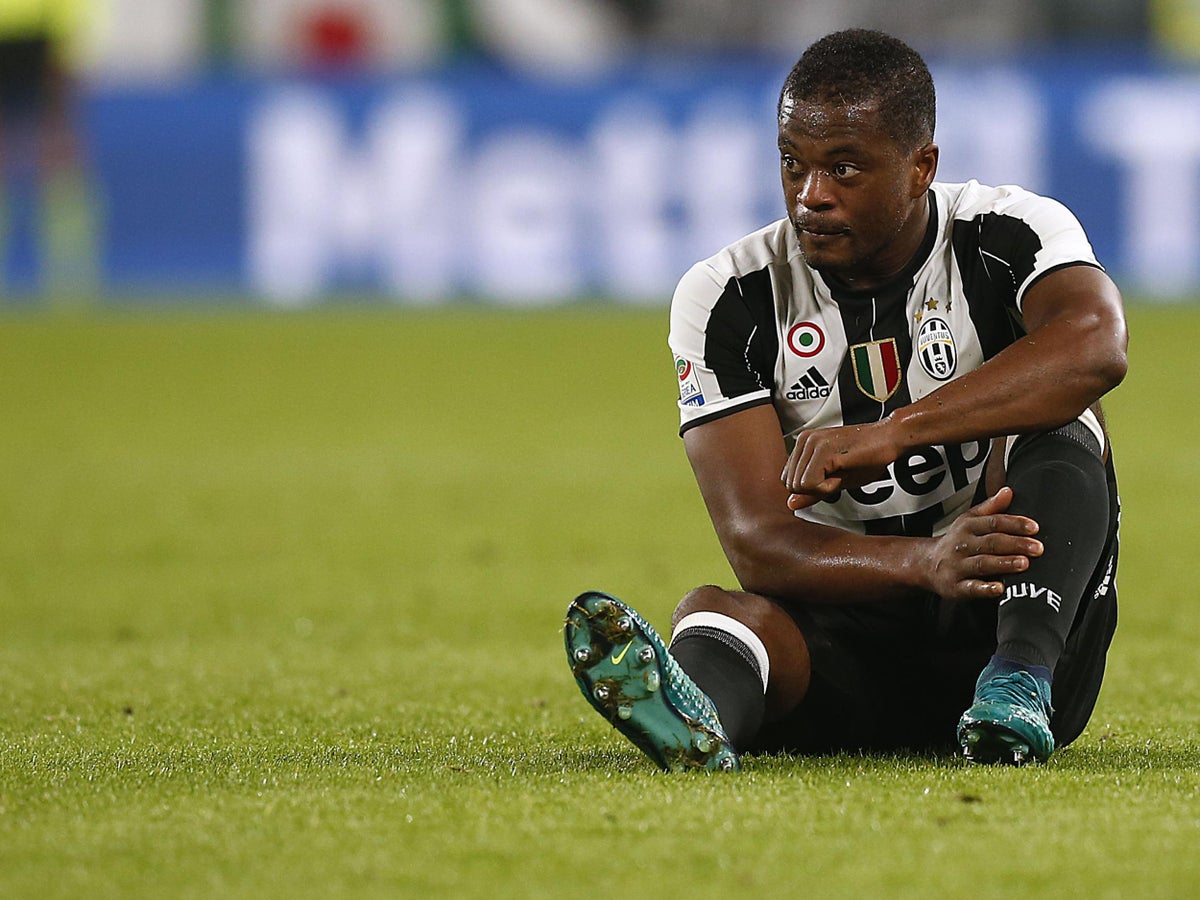
In the following season, Evra continued to excel, making significant contributions as United secured another Premier League title and won the UEFA Champions League. He signed a contract extension with the club, demonstrating his commitment to Manchester United until 2012. Throughout his time at United, Evra established himself as one of the best left-backs in the world and played a crucial role in the club's success under manager Sir Alex Ferguson.
During the 2008–09 season, Patrice Evra faced a significant challenge when he was charged with four counts of improper conduct by the FA. These charges stemmed from an altercation with a Chelsea groundsman during the previous season. Despite denying the charges, Evra was found guilty and handed a four-match ban and a fine.
However, Evra's suspension did not prevent him from featuring for Manchester United in the 2008 FIFA Club World Cup. He played a vital role as United emerged as champions after defeating LDU Quito in the final. Despite sustaining a foot injury in January 2009, Evra continued to contribute to United's success upon his return to the lineup.
The 2008–09 season saw Manchester United secure their third consecutive Premier League title and reach the UEFA Champions League final, where they were defeated by Barcelona. Evra's performances earned him a place in the PFA Team of the Year for the second time.
In the following season, Evra played in all 38 league matches, showcasing his consistency and durability. Despite some early setbacks, including a penalty miss in the FA Community Shield, he captained United on several occasions due to injuries to key players.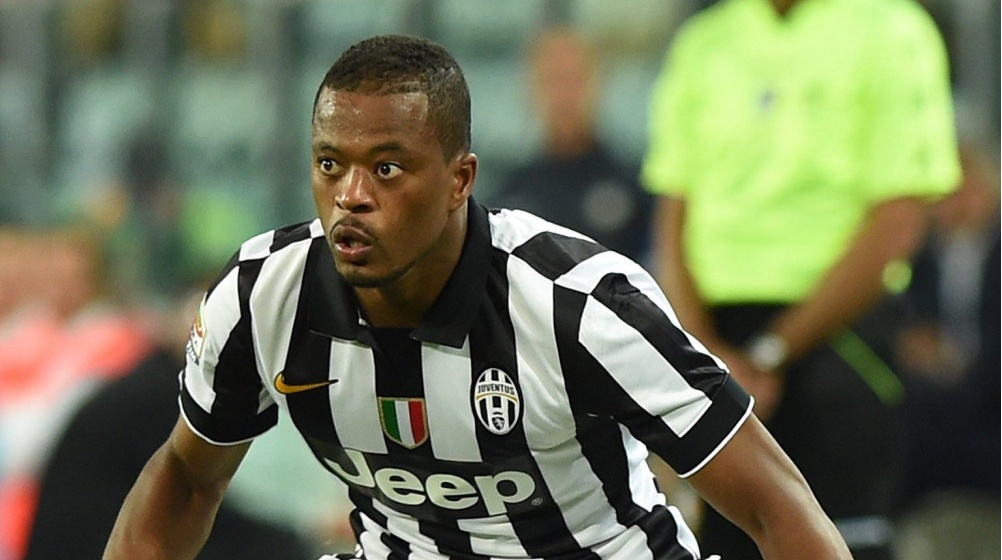
Evra's leadership was further demonstrated when he captained Manchester United to victory in the 2010 League Cup final, securing his fourth title with the club. Although United failed to retain their Premier League title, Evra's contributions were recognized when he was named in the FIFPro World XI and the UEFA Team of the Year.
The 2010–11 season saw Evra facing scrutiny following France's disappointing performance at the 2010 FIFA World Cup. Despite contract negotiations and ongoing inquiries from the French Football Federation, Evra remained focused on his club duties and signed a contract extension with Manchester United.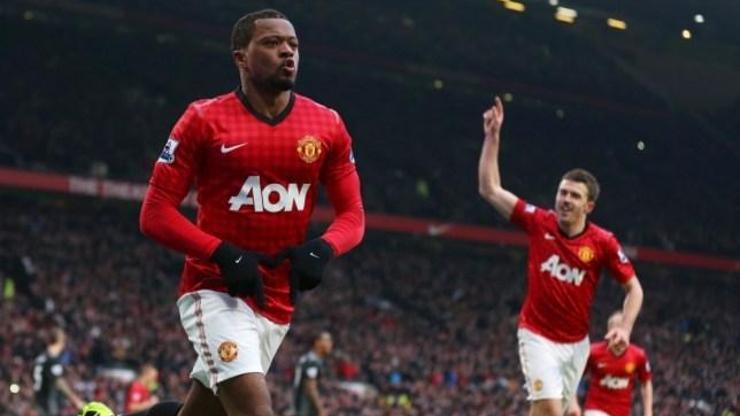
Throughout the subsequent seasons, Evra continued to excel, contributing both defensively and offensively. He scored several crucial goals, including headers from corners and strikes from open play. His consistent performances earned him a contract extension in 2014, ensuring his presence at Manchester United until at least the summer of 2015.
Patrice Evra's move to Juventus in July 2014 marked a new chapter in his career. Joining the Serie A club on a two-year contract, Evra quickly became an integral part of the team's defensive setup. He scored his first goal for Juventus in a 1–1 draw against Sampdoria on 14 December 2014.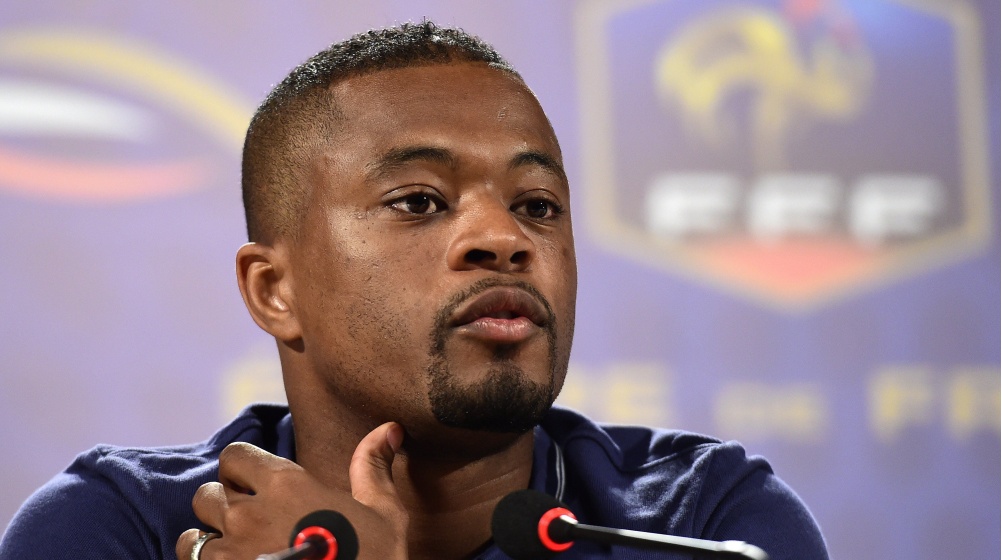
Evra's tenure at Juventus included reaching the final of the UEFA Champions League in 2015, where the team was defeated 3–1 by Barcelona. This match was notable as it marked Evra's fifth appearance in a Champions League final, making him the first player to lose four finals in the competition's history. Additionally, he became the first player to lose a Champions League final with three different clubs and to lose against the same opponent, Barcelona, on three occasions.
During his time at Juventus, Evra achieved significant milestones, such as making his 100th UEFA Champions League appearance in November 2015. He scored a goal in the last match of the 2015–16 Serie A season, contributing to Juventus' fifth consecutive league title win.
On 6 June 2016, Evra extended his contract with Juventus for another year, with an option for a further extension. His time at Juventus showcased his continued excellence and contribution to the team's success both domestically and in European competitions.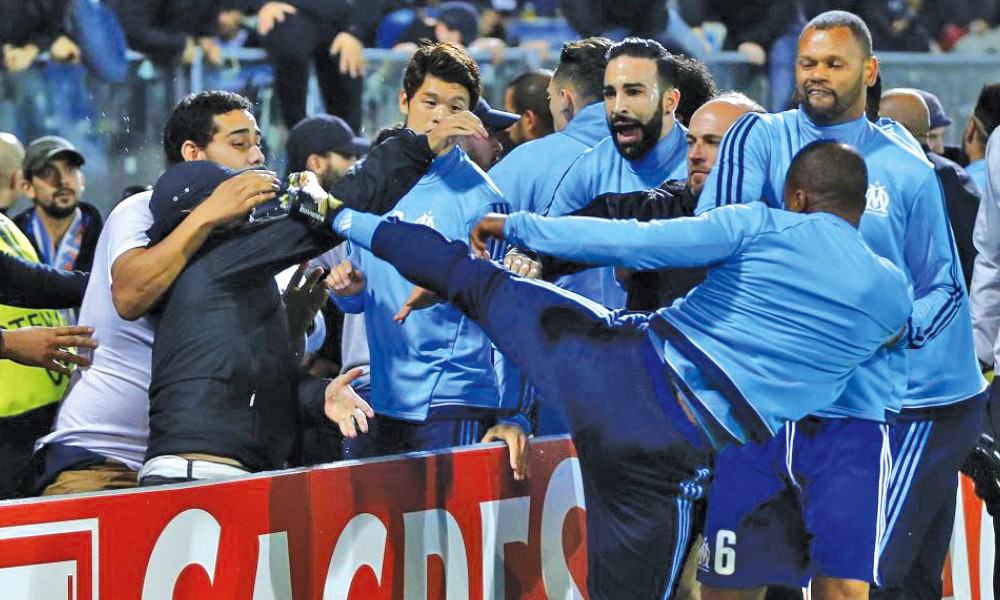
Patrice Evra's time at Marseille took a dramatic turn following an incident during a Europa League match warm-up on 2 November 2017. Evra was sent off for kicking a spectator in the head, who was allegedly mocking him as he trained. Marseille coach Rudi Garcia condemned both the fan's behavior and Evra's reaction to the provocation.
The day after the incident, Marseille suspended Evra indefinitely pending further investigation. UEFA also charged Evra with violent conduct, resulting in a ban from UEFA competitions until June 2018. Subsequently, Marseille terminated Evra's contract immediately, ending his tenure with the club.
Despite scoring his only goal for Marseille in a 2–1 win over Nice on 7 May 2017, Evra's time with the club was overshadowed by this controversy. The incident marked a significant setback in Evra's career and raised questions about his future in professional football.
References
- "Le PSG ne veut plus rater un Evra ou un Diaby". Foot01 (in French). France. 29 March 2011. Archived from the original on 17 March 2012. Retrieved 1 June 2011.
- a b c d e f g "From Dakar to Old Trafford, via Paris, Milan (just), Sicily and Stamford Bridge". The Guardian. London. 22 January 2006. Archived from the original on 9 December 2013. Retrieved 8 April 2011.
- ^ "Calciobidoni – Tutti i bidoni del calcio italiano – Evrà" (in Italian). Calciobidoni. Archived from the original on 28 February 2014. Retrieved 16 April 2011.
- ^ "Mondo CALCIO – Serie B 1999/2000: Alzano–Monza". RAI Sport (in Italian). RAI. Archived from the original on 13 March 2005. Retrieved 13 September 2011.
- ^ "O.G.C. Nice Reserve Pro: Saison Football 2000/2001". Stat 2 Foot (in French). Archived from the original on 2 April 2012. Retrieved 7 April 2011.
- ^ "Châteauroux v. Nice Match Report". LFP.fr (in French). Ligue de Football Professionnel. 7 October 2000. Archived from the original on 25 May 2012. Retrieved 7 April 2011.
- ^ "Cannes v. Nice Match Report". LFP.fr (in French). Ligue de Football Professionnel. 28 October 2000. Archived from the original on 16 April 2013. Retrieved 7 April 2011.
- ^ "Nancy v. Nice Match Report". LFP.fr (in French). Ligue de Football Professionnel. 9 December 2000. Archived from the original on 19 December 2013. Retrieved 7 April 2011.
- ^ "Nice v. Laval Match Report". LFP.fr (in French). Ligue de Football Professionnel. 21 December 2000. Archived from the original on 19 December 2013. Retrieved 7 April 2011.
- ^ "Le Havre v. Nice Match Report". LFP.fr (in French). Ligue de Football Professionnel. 18 May 2001. Archived from the original on 8 October 2012. Retrieved 7 April 2011.
- ^ "Patrice Evra, le latéral gauche de référence". Footballfr (in French). 3 October 2009. Archived from the original on 26 March 2012. Retrieved 1 June 2011.
















































